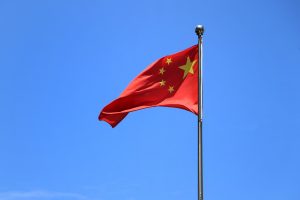The Diplomat author Mercy Kuo regularly engages subject-matter experts, policy practitioners, and strategic thinkers across the globe for their diverse insights into U.S. Asia policy. This conversation with Dr. Robert Spalding – CEO of SEMPRE, retired brigadier general in the U.S. Air Force, and author of the newly-published book “War Without Rules: China’s Playbook for Global Domination” (Sentinel 2022) – is the 322nd in “The Trans-Pacific View Insight Series.”
Identify the core elements of China’s “playbook for global domination.”
The everyday becomes weaponized. The idea is to attack the foundations of democracy by undermining the confidence in democracy as an institution. The method is by creating fear and uncertainty in our social, political, and economic systems, and to have citizens begin to question whether adopting the Chinese Communist Party system would be better for their lives.
What are the “magic shoes” of technology?
The idea that the technology created by Silicon Valley rather than enabling better lives, actually enables the controlling of citizens through their data. Given that IT systems are the bonding agent that lightly touches and combines everything, then these systems give the ability to control. Who will control these systems and to what end? In the minds of the two colonels [Qiao Liang and Wang Xiangsui, the authors of the 1999 Chinese military strategy book “Unrestricted Warfare”], the party must control the data, to control the people.
Explain how China is weaponizing the international order.
By ensuring that corporate and financial institutions conform to their will. In addition, they see international institutions such as the U.N. and the World Bank as similarly important to control. In 1999, they see the U.S. as the nation that controls these institutions. They seek to use their influence both over the individuals who work in these institutions as well as the nations that are members. By slowly infiltrating these institutions they seek to change their character, while retaining the veneer of a rules-based order.
Analyze the new rules needed to manage China’s ambitions.
China’s ambitions cannot be managed. All we can do is ensure that their access to institutions is limited to prevent their infiltration and influence. Additionally, by preventing their access we remove their ability to gain technology, talent and capital that strengthens their position relative to democracies.
Assess U.S. weakness and strength vis-à-vis U.S.-China rivalry.
America’s main weakness is its openness. To protect itself it must relearn the lessons of the Cold War. Prevent China, Russia and others from undermining its social norms while remaining open to other democracies. To the extent other democracies do not take similar actions they likewise must be isolated otherwise they become vectors of attack from China.

































